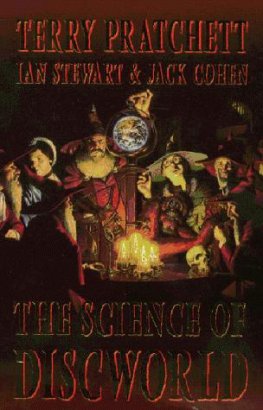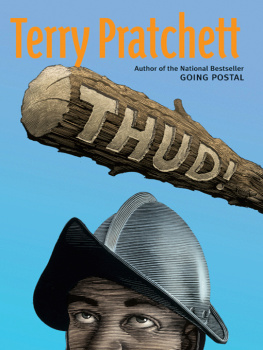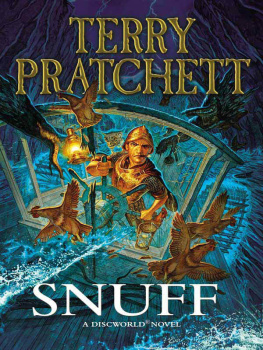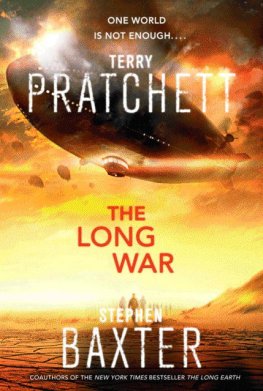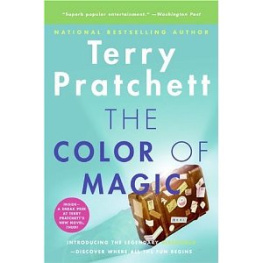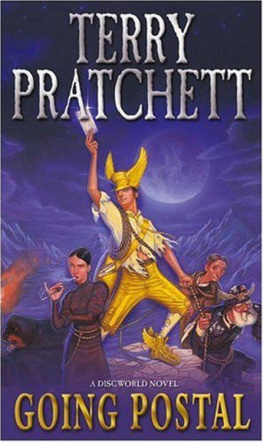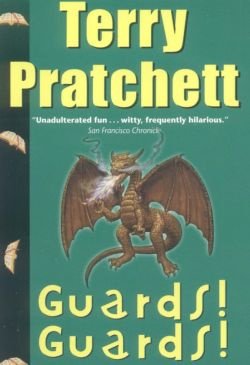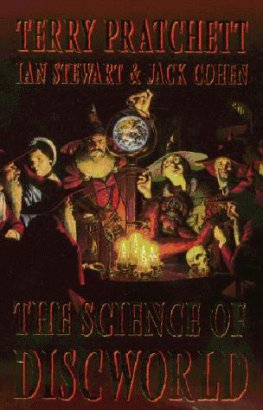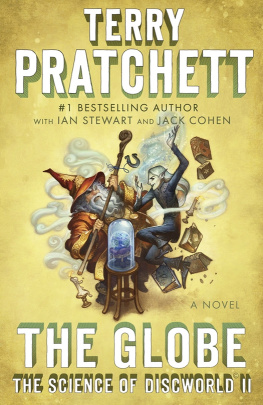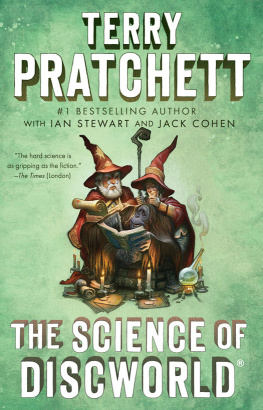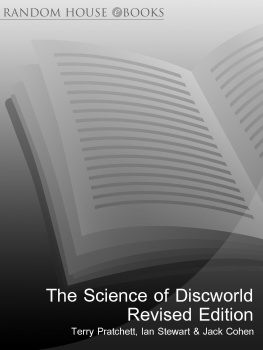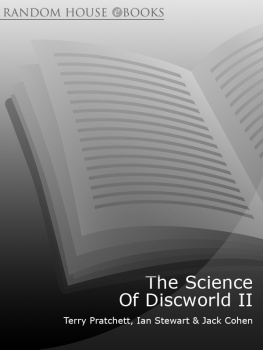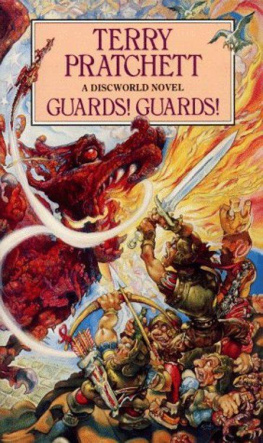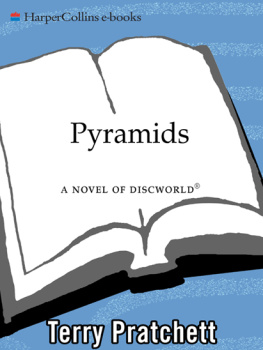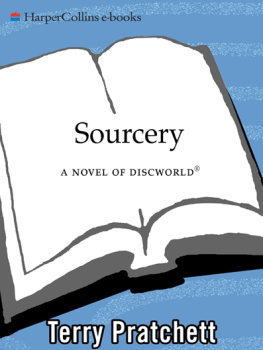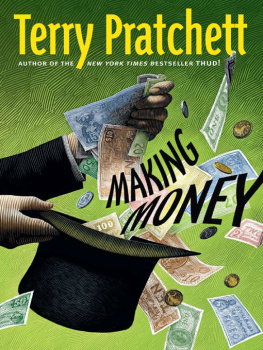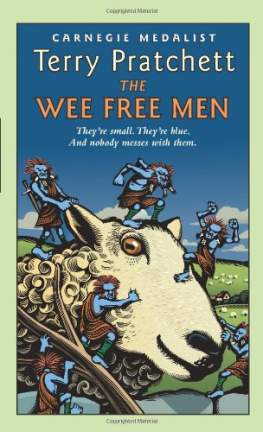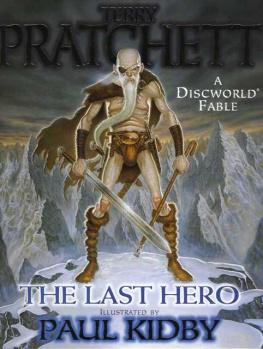Terry Pratchett - The Science of Discworld I
Here you can read online Terry Pratchett - The Science of Discworld I full text of the book (entire story) in english for free. Download pdf and epub, get meaning, cover and reviews about this ebook. genre: Science fiction. Description of the work, (preface) as well as reviews are available. Best literature library LitArk.com created for fans of good reading and offers a wide selection of genres:
Romance novel
Science fiction
Adventure
Detective
Science
History
Home and family
Prose
Art
Politics
Computer
Non-fiction
Religion
Business
Children
Humor
Choose a favorite category and find really read worthwhile books. Enjoy immersion in the world of imagination, feel the emotions of the characters or learn something new for yourself, make an fascinating discovery.
- Book:The Science of Discworld I
- Author:
- Genre:
- Rating:5 / 5
- Favourites:Add to favourites
- Your mark:
- 100
- 1
- 2
- 3
- 4
- 5
The Science of Discworld I: summary, description and annotation
We offer to read an annotation, description, summary or preface (depends on what the author of the book "The Science of Discworld I" wrote himself). If you haven't found the necessary information about the book — write in the comments, we will try to find it.
The Science of Discworld I — read online for free the complete book (whole text) full work
Below is the text of the book, divided by pages. System saving the place of the last page read, allows you to conveniently read the book "The Science of Discworld I" online for free, without having to search again every time where you left off. Put a bookmark, and you can go to the page where you finished reading at any time.
Font size:
Interval:
Bookmark:
Terry Pratchett, Ian Stuart, Jack Cohen
The Science of Discworld I
THE STORY STARTS HERE
ONCE UPON A TIME, there was Discworld. There still is an adequate supply.
Discworld is the flat world, carried through space on the back of a giant turtle, which has been the source of, so far, twenty-three novels, four maps, an encylopaedia, two animated series, t-shirts, scarves, models, badges, beer, embroidery, pens, posters, and probably, by the time this is published, talcum power and body splash (if not, it can only be a matter of time).
It has, in short, become immensely popular.
And Discworld runs on magic.
Roundworld, our home planet, and by extension the universe in which it sits, runs on rules. In fact, it simply runs. But we have watched the running, and those observations and the ensuing deductions are the very basis of science.
Magicians and scientists are, on the face of it, poles apart. Certainly, a group of people who often dress strangely, live in a world of their own, speak a specialized language and frequently make statements that appear to be in flagrant breach of common sense have nothing in common with a group of people who often dress strangely, speak a specialized language, live in ... er ...
Perhaps we should try this another way. Is there a connection between magic and science? Can the magic of Discworld, with its eccentric wizards, down-to-Earth witches, obstinate trolls, fire-breathing dragons, talking dogs, and personified DEATH, shed any useful light on hard, rational, solid, Earthly science?
We think so.
We'll explain why in a moment, but first, let's make it clear what The Science of Discworld is not. There are several media tie-in The Science of... books at the moment, such as The Science of the X-Files and The Physics of Star Trek. They will tell you about areas of today's science that may one day lead to the events or devices that the fiction depicts. Did aliens crash-land at Roswell? Could an antimatter warp drive ever be invented? Could we ever have the ultra long-life batteries that Scully and Mulder must be using in those torches of theirs?
We could have taken that approach. We could, for example, have pointed out that Darwin's theory of evolution explains how lower lifeforms can evolve into higher ones, which in turn makes it entirely reasonable that a human should evolve into an orangutan (while remaining a librarian, since there is no higher life form than a librarian). We could have speculated on which DNA sequence might reliably incorporate asbestos linings into the insides of dragons. We might even have attempted to explain how you could get a turtle ten thousand miles long.
We decided not to do these things, for a good reason ... um, two reasons.
The first is that it would be ... er ... dumb.
And this because of the second reason. Discworld does not run on scientific lines. Why pretend that it might? Dragons don't breathe fire because they've got asbestos lungs, they breathe fire because everyone knows that's what dragons do.
What runs Discworld is deeper than mere magic and more powerful than pallid science. It is narrative imperative, the power of story. It plays a role similar to that substance known as phlogiston, once believed to be that principle or substance within inflammable things that enabled them to burn. In the Discworld universe, then, there is narrativium. It is part of the spin of every atom, the drift of every cloud. It is what causes them to be what they are and continue to exist and take part in the ongoing story of the world.
On Roundworld, things happen because the things want to happen. What people want does not greatly figure in the scheme of things, and the universe isn't there to tell a story.
With magic, you can turn a frog into a prince. With science, you can turn a frog into a Ph.D and you still have the frog you started with.
That's the conventional view of Roundworld science. It misses a lot of what actually makes science tick. Science doesn't just exist in the abstract. You could grind the universe into its component particles without finding a single trace of Science. Science is a structure created and maintained by people. And people choose what interests them, and what they consider to be significant and, quite often, they have thought narratively.
Narrativium is powerful stuff. We have always had a drive to paint stories on to the Universe. When humans first looked at the stars, which are great flaming suns an unimaginable distance away, they saw in amongst them giant bulls, dragons, and local heroes.
This human trait doesn't affect what the rules say, not much, anyway, but it does determine which rules we are willing to contemplate in the first place. Moreover, the rules of the universe have to be able to produce everything that we humans observe, which introduces a kind of narrative imperative into science too. Humans think in stories. Classically, at least, science itself has been the discovery of 'stories', think of all those books that had titles like The Story of Mankind, The Descent ofMan, and, if it comes to that, A Brief History of Time.
Over and above the stories of science, though, Discworld can play an even more important role: What if? We can use Discworld for thought experiments about what science might have looked like if the universe had been different, or if the history of science had followed a different route. We can look at science from the outside.
To a scientist, a thought experiment is an argument that you can run through in your head, after which you understand what's going on so well that there's no need to do a real experiment, which is of course a great saving in time and money and prevents you from getting embarrassingly inconvenient results. Discworld takes a more practical view, there, a thought experiment is one that you can't do and which wouldn't work if you could. But the kind of thought experiment we have in mind is one that scientists carry out all the time, usually without realizing it; and you don't need to do it, because the whole point is that it wouldn't work. Many of the most important questions in science, and about our understanding of it, are not about how the universe actually is. They are about what would happen if the universe were different.
Someone asks 'why do zebras form herds?' You could answer this by an analysis of zebra sociology, psychology, and so on ... or you could ask a question of a very different kind: 'What would happen if they didn't?' One fairly obvious answer to that is 'They'd be much more likely to get eaten by lions.' This immediately suggests that zebras form herds for self-protection, and now we've got some insight into what zebras actually do by contemplating, for a moment, the possibility that they might have done something else.
Another, more serious example is the question 'Is the solar system stable?', which means 'Could it change dramatically as a result of some tiny disturbance?' In 1887 King Oscar II of Sweden offered a prize of 2,500 crowns for the answer It took about a century for the world's mathematicians to come up with a definite answer: 'Maybe'. (It was a good answer, but they didn't get paid. The prize had already been awarded to someone who didn't get the answer and whose prizewinning article had a big mistake right at the most interesting part. But when he put it right, at his own expense, he invented Chaos Theory and paved the way for the 'maybe'. Sometimes, the best answer is a more interesting question.) The point here is that stability is not about what a system is actually doing: it is about how the system would change if you disturbed it. Stability, by definition, deals with 'what if?'.
Font size:
Interval:
Bookmark:
Similar books «The Science of Discworld I»
Look at similar books to The Science of Discworld I. We have selected literature similar in name and meaning in the hope of providing readers with more options to find new, interesting, not yet read works.
Discussion, reviews of the book The Science of Discworld I and just readers' own opinions. Leave your comments, write what you think about the work, its meaning or the main characters. Specify what exactly you liked and what you didn't like, and why you think so.

